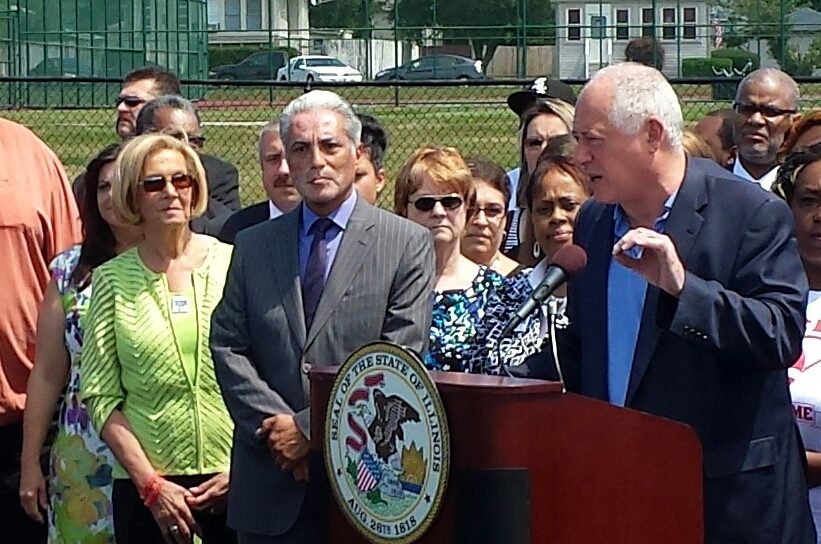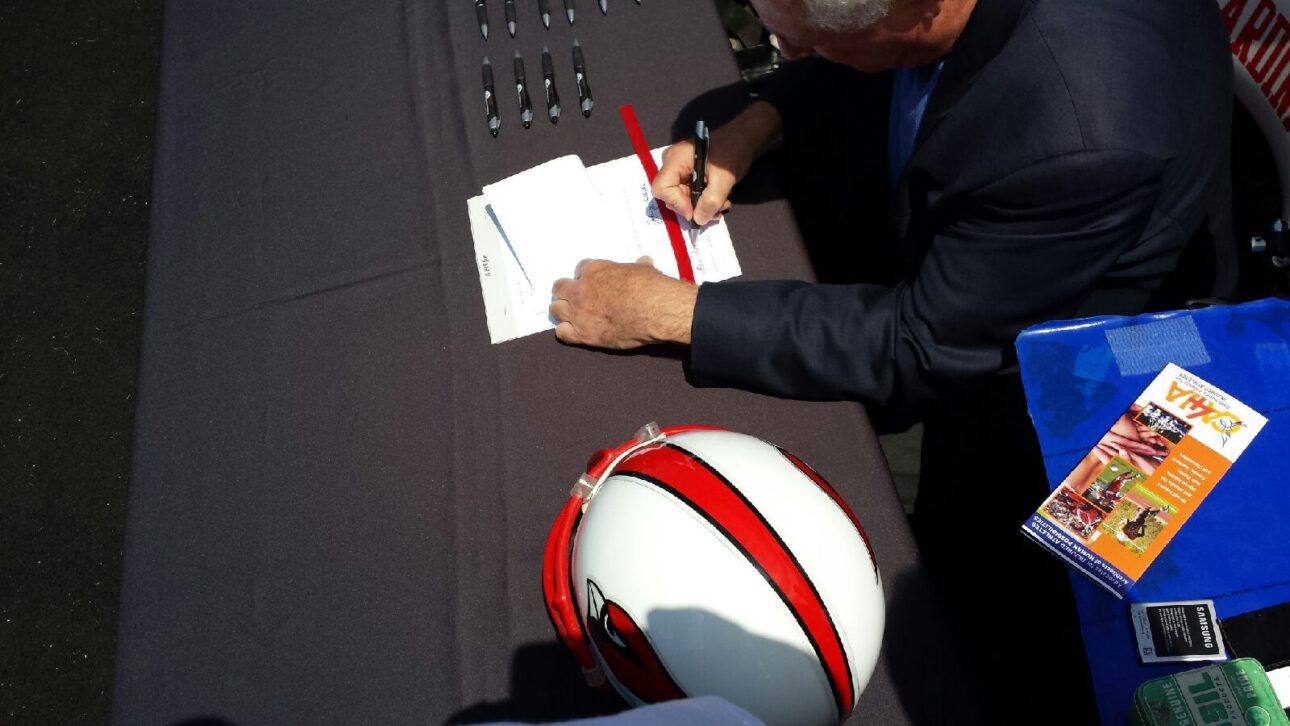
With three former NFL players in attendance at the signing, as well as hundreds of Rocky’s friends and supporters, Rocky’s Law is a win for student athletes everywhere.
Rocky’s Legacy Lives On
During a high school football game in 2000, Rocky sustained a spinal cord injury which left him paralyzed from the neck down. Rocky spent the final years of his life going head-to-head with the insurance industry after his policy reached its lifetime cap, which inflicted major stress on him and his family—and more important, his treatment.
“I am so proud of Rocky and the legacy he has left behind,” says Anne O’Sullivan, RRT, RCP, who knew Rocky well.

Rocky’s Law will take effect on January 1, 2014. According to Governor Quinn’s official statement, the law institutes the following requirements for public and private high schools:
- Catastrophic accident insurance coverage for student athletes who sustain injuries during school-sponsored sports and incur expenses greater than $50,000.
- Insurance policies must have collective limits of $3 million or five years (whichever comes first).
- Coverage is in addition to other insurance with an estimated cost of $5 per student.
Protecting Athletes against Injuries
The National Federation for High School Sports (NFHS) recently instituted new rules and regulations for high school football to protect student athletes.
“These new rules are the only way we’ll save football—and the students who play the game,” says Mark Elias, RCP, an official for high school football. “The NFHS is putting some teeth behind the rules.”
An official for the last 37 years, Mark explains the changes coming to football this fall. Among the changes, officials have been instructed to closely monitor helmet-to-helmet contact and players can no longer lead with their helmets without risking a foul or ejection from the game.
How will this new law affect you and your family, and what changes have you seen in high school or professional sports to protect athletes against injuries?
